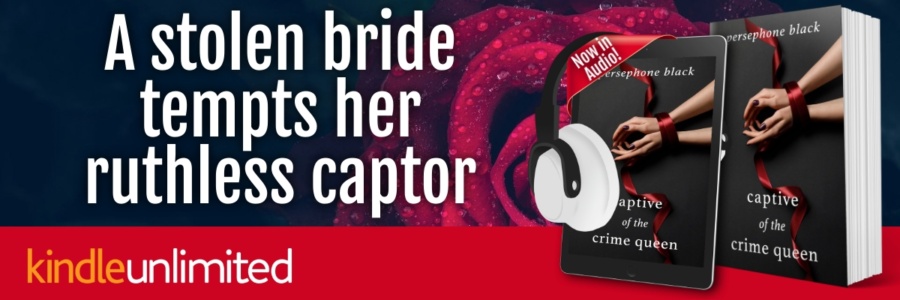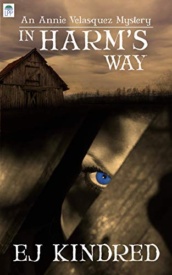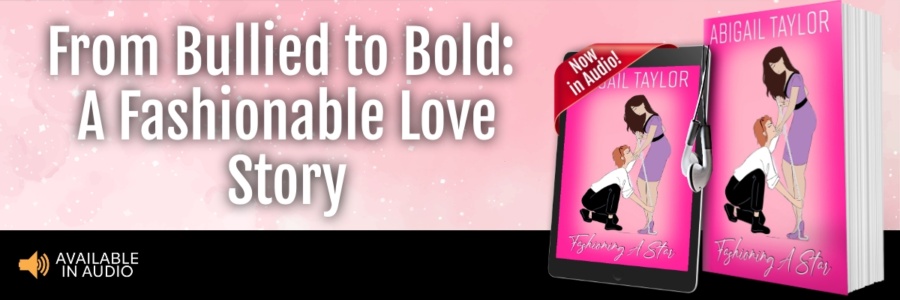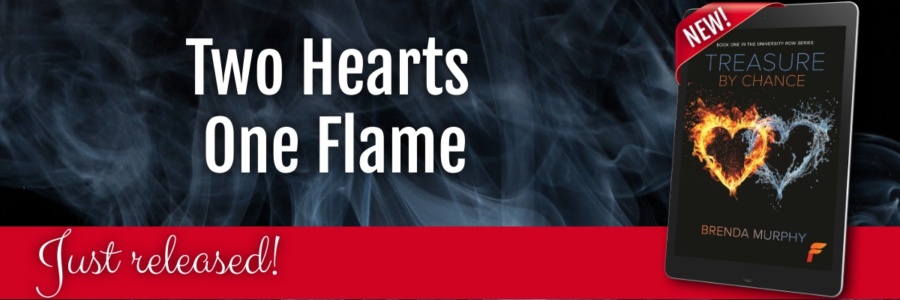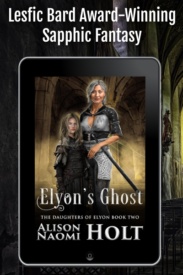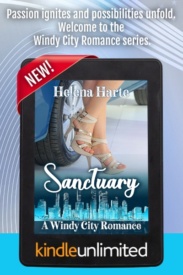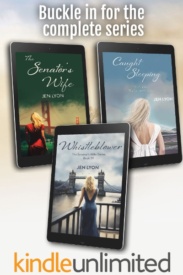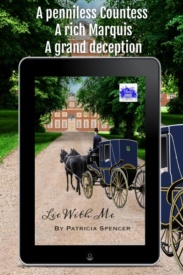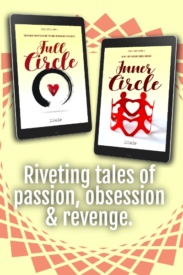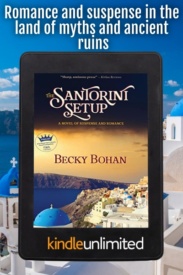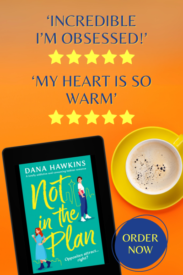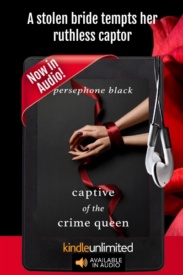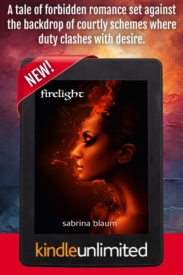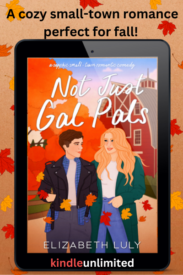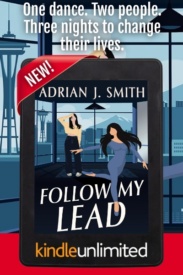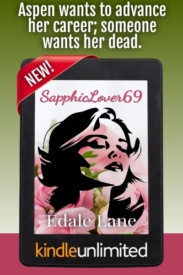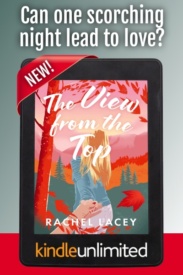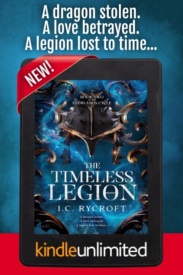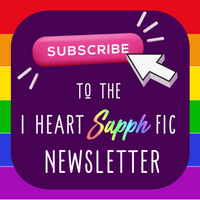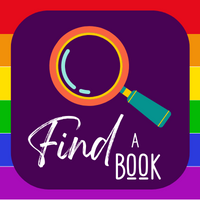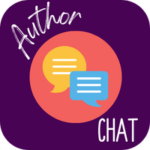
Get ready to learn more about the book In Harm’s Way in this discussion with sapphic author EJ Kindred.
Join us for an exclusive peek behind the scenes as we quiz EJ Kindred about In Harm’s Way, writing, reading, and more.
This book is part of the Mystery category in the 2024 IHS Reading Challenge.
Why did you write In Harm’s Way?
In Harm’s Way started, as all of my writing does, with a line of dialogue that popped into my head and refused to leave me alone. I wrote it down, because that’s the only way I know to get it to shut up, but once I did that, I started writing, just to see where it went. After a short time, I had a few characters I thought were interesting, especially my protagonist, Annie Velasquez. She was living in a small town working as a housekeeper. She had moved there from Portland after the death of her father in an arson fire.
As for the timing of the story, I’ve always had some kind of writing project going, mostly just noodling with them. The more I wrote, the more ideas I had for the story, but I still worked on it sporadically for almost five years.
Who is your favorite character in the book?
This is a tough question, because I have more than one favorite character. My protagonist, Annie Velasquez, is first. She’s a woman in her late 20s who’s had more than her fair share of traumas. She was raised by her father and grandmother after the death of her mother. Then her father dies in an arson fire. The prime suspect in the fire is Annie’s girlfriend, Nicky Fleming, but NIcky is found dead a few weeks after the fire. Annie is the person of interest in Nicky’s case, because the police consider she had a strong motive–revenge–to kill Nicky. So Annie moves to a small town outside Portland to try to recover from all of that, and then she discovers the dead body of her employer. Despite herself, she thinks she knows who killed the doctor and she starts following that person. In the middle of all of that, Annie’s grandmother, who everyone calls Grandma Natalie is severely injured in a motorcycle wreck.
Grandma Natalie is my second favorite character. In her 60s, she rides Harley Davidsons with pride. She’s the sort who’s never met a stranger. When she’s injured, Annie moves back to Portland to help take care of her.
Annie is like me in her resilience (that sounds egotistical, doesn’t it?). We’ve all had traumas of one kind or another, but when Annie gets knocked down, she gets right back up and keeps going, sometimes when she shouldn’t. For instance, she keeps searching for the doctor’s killer when she should know better. I guess that sounds like me, too! Oh dear.
Grandma Natalie and I are alike in how we choose our own paths. She rides motorcycles even though Annie worries about her safety. She’s her own woman, independent to a fault, and not at all concerned with adhering to societal expectations of a woman, especially one in her 60s.
What was the biggest challenge writing this book?
Consistency. When I started writing In Harm’s Way, I never considered that it might be published, so I just picked at it when I was in the mood. I’d been doing that for about four years when Lori Lake called me and said she wanted to publish it. After I picked my jaw up off the floor, I got to work in earnest and finished the first draft.
What part of In Harm’s Way was the most fun to write?
The characters, absolutely. There’s Annie, half Mexican and half Scandinavian, a somewhat reserved person with a few good friends. Grandma Natalie, who’s just too much fun for one human being. Joe, a Black man Annie’s age who was adopted by Annie’s dad when Joe’s mom died. Patrick, Annie’s long-time friend and attorney, who can’t quite keep himself from playing pranks on Annie when he’s supposed to be her lawyer. Beth O’Brien, beautiful homicide detective who Annie is immediately attracted to, even though she could arrest Annie at any time. Rachel and Sally, Annie’s closest friends. I thoroughly enjoy finding new characters and seeing what they do.
How did you come up with the title for your book?
I struggled to find a title for In Harm’s Way, but one day, I was at a writer’s group meeting. I was describing the story in general terms and the other ladies were trying to help me find a title. I found myself saying, “Annie keeps putting herself in harm’s way.” And there it was.
If you’re planning a sequel, can you share a tiny bit about your plans for it?
I have published a sequel to In Harm’s Way, titled Family Secrets. It was released in April 2024. In it, Annie and her adopted brother, Joe, decide to rebuild their dad’s bicycle shop, which burned in the arson fire. Their efforts are hindered by repeated episodes of vandalism at the shop. Someone once thought to be dead returns. An unscrupulous police detective breaks a few laws. Grandma Natalie gets a boyfriend. A lot of other stuff happens. Since the book it out, I don’t want to say too much.
In June, I finished the first draft of the third book in the series, titled Aftermath. In it, Annie’s life has taken a turn to the dark side. When the book begins, Grandma Natalie has been missing for three months. Events from the first two books have piled more stress on Annie, and she’s acting out in a way that puts her safety at risk. But she rallies and goes to work with the help of an unusual posse of friends and acquaintances–and a new love interest–to find her grandmother.
What is your writing process like?
I’m a pantser through and through. The closest I’ve ever come to outlining is making a list of plot points that I might or might not use. I’ve read books about outlining, and I’ve tried mapping my major plot events to the places in my story where the authors of those books say they should go, and it just doesn’t work for me. I’ve been called an instinctive writer, and while some may think that’s less than ideal, it seems to be who I am.
What I like most about pantsing is having a general idea where the story should go and being totally willing for it to go elsewhere. New ideas pop up all the time. New characters introduce themselves. I recently wrote a character who I thought would make one or two appearances, and she became central to the plot. I love when that happens. The discoveries are just too much fun.
As for parts I wish I could change? Nope. I’m good. For me, outlining kills creativity, and why would I want that?
Where do you usually write, and what do you need in your writing space to help you stay focused?
I write in my home office. I worked from home starting in 1998 up until I retired in 2017, so I was already in the habit of going to the computer every morning. That’s not to say I write in the mornings, because I don’t. I do other things all day, housework, errands, computer games, talking with friends, whatever else, and then like some kind of magic, the mood to write catches up with me sometime later in the afternoon. I will write something, even if it’s just a paragraph, almost every day.
I require quiet to write. Well, as an introvert, I prefer quiet a lot of the time, so this isn’t anything unusual for me. I must always have something to drink, usually diet coke or ice water, with me. I need my comfortable office chair, my phone because it’s practically tethered to my body anyway, and a cat or two to keep me company.
Do you have any odd writing quirks?
I have a real talent for leaving words out of sentences, especially when I’m writing quickly. My fingers can’t keep up with my brain, I guess. So I’ll just randomly not use all of the words I need. Fortunately, I find them during editing and making revisions. At least I hope I find all of them!
I also don’t make typos in the way most people would think of it. When I mistype a word, my fingers, all on their own, just type a different word. So there’s no little red line to warn me that I’ve made a typo, and since I don’t use the grammar checker in Word, it doesn’t stand out. All I can do is hope those are caught as well.
Do you have a pet who helps/hinders your typing?
Oh boy do I. I have six cats who conspire to keep my life interesting.
Elliott is the oldest. He’s 16, solid white, and has advanced kidney disease and high blood pressure. He’s a character and two thirds, with a sense of humor and bad temper. He can go from happy and purring to biting within seconds. Good thing he has no teeth.
Next is Sophie, black and white tuxedo, who will be 16 toward the end of August. She has too many health problems to count, but she’s a happy girl most of the time. She’s known at my primary vet’s office for being “spicy,” which is the veterinary euphemism for “major pain in the ass.” We’re currently waiting to hear from one of the specialists about whether she has cancer. She likes to sleep on my chest.
Henry, 15 years old, solid black, diabetic drama queen. He’s very loving, but screeches bloody murder if any of the other cats get within five feet of him. He would have been a lot happier as an only cat, but he’s fine, no matter what lies he tells.
Then there’s Sydney, long-haired black one-eyed toothless wonder, and hand’s down one of the sweetest cats ever. He’s probably about 12 or 13 years old. He was found as a stray when he was an adult, so there’s no way to know exactly. He has chronic auto-immune problems.
Are we detecting a theme here?
Next is Penny, six years old. She has a minor heart problem, but she’s also the biggest cat glutton in the western hemisphere. She eats her food quickly and then goes and eats everyone else’s unless I stop her. She has the biggest purr I’ve ever heard.
And her brother is Jerry, grey Siamese coloring with blue eyes, the one cat in my house without any health problems. He was the runt of the litter and almost died when he was about three weeks old. Now he’s the biggest cat in the house, a total sweetheart.
Let’s not talk about my vet bills, okay?
What has helped or hindered you most when writing a book?
I’ve been hindered most by my own insecurities. Is my writing good enough? Are my ideas cliche? Do I really want someone to read my stories? Am I revealing too much of myself in my writing? The list goes on. When this starts to come up, I put the writing away for a time and come back to it later, and when I do that, I always discover that, hey, this is pretty good, and I’m on my way.
What do you do to get inside your character’s heads?
I’m writing the Annie Velasquez series in the first person, so I’m always in Annie’s head. When I’m really immersed in the writing, I sometimes even have dreams about her and the other characters. But when I sit down to write, I go back a scene or two and read what I’ve already written. It helps me get back in the flow of the story and also back into Annie’s reality. I’m starting to write a new standalone, which I think will be from the perspective of three different people and in third person, so getting into their heads will definitely be a different experience.
Have you ever cried when writing an emotional scene?
Most of the emotional scenes I write are when a character is angry or upset about something, and those are easy for me. In the draft of the new book, I wrote one scene that made me tear up a little when I wrote it. In that scene, Annie goes into a bar where she’s becoming close with the bartender. Annie’s had a close call with some bad people, and the bartender intuitively knows something is wrong and asks about it. Annie, of course, avoids the question. And here’s the exchange (edited):
I blinked the tears away and spun my barstool to face her. “You’re kinda spooky sometimes.” I tried to sound light.
“Yeah, but I’m right, aren’t I?” She took my hand. “I’m here if you want to talk.” She laughed, lifting my spirits. “And if you don’t want to talk, I’m here for that, too.” She put her hand under my chin and lifted my face to hers for a deep kiss that took my breath away.
When she let me go, I half-whispered, “Why?”
“You have no idea how special you are, do you?” She looked deep into my eyes. “You’re a tender soul, Blue Moon. I’d hate to see anyone take that away from you.”
***
It’s one of my favorite scenes in the new book.
Do you feel bad putting your characters through the wringer?
There wouldn’t be much of a story without the characters going through “the wringer,” so no, I don’t feel bad about it. I actually have some fun trying to find new ways to complicate the characters’ lives. I’ve thrown so much stuff at Annie it’s a wonder she hasn’t told me off and hopped a plane for Iceland. But who would want to read a book where everyone’s lives were lovely and peaceful?
That said, I had a lot of fun in the second book (Family Secrets) where Annie goes into a meeting with the homicide detectives and exposes the misdeeds of two of them for everyone present. I don’t imagine too many murder suspects would have the nerve to look into the eyes of a detective and tell him off to his face, but that’s what she does. It was fun to write, and if that qualifies as “evil glee,” I’ll take it.
What books did you grow up reading?
I grew up reading everything I could lay my hands on. When I was in the second grade, my mom bought me a set of books she said were “too old” for me and she’d read them to me. She never did, and I got tired of waiting, so I read them myself. I was the only reader in the family. We lived in Florida for a couple of years, and the local library restricted books to three per person. Five people in the family, and I took home 15 books every two weeks.
Being a voracious reader has definitely given me an advantage in writing, mostly because I was exposed to so much use of the language. I guess I developed a sort of innate sense of what works and what doesn’t, but I also grew up in a time when “language arts” was taught as its own class. I’ve always loved words and their nuances. I commented once about the rhythms in prose, and I got such puzzled looks that I haven’t said it since, but I still see it. Whether that translates into good writing for me is up to the reader to decide.
What books have you read more than once in your life?
I’ve read the “Bill the Vampire” series (by Rick Gualtieri) at least three times. They’re a fun read, and I love the characters. Every once in a while, he throws in a sentence that’s just beautiful. I’ve read Katie Mack’s book, The End of Everything, three times and I’m reading it again now. It’s about the current theories about how the universe will end. She’s brilliant and she has a wonderful sense of humor. I wish I could take a class from her. I’ve read Dean Koontz’s book, Watchers, at least twice and I want to read it again, because I like the premise and I like the dog. He writes great dogs. There are others. There’s more to reading a good book than knowing how the story ends, and no matter how closely I read, I’ll always find new details when rereading. I read The Help twice before I saw the line about the maids stealing milk after it expired. Well, the book was set in the 1960s and expiration dates didn’t exist then. There’s always something new to experience.
Describe your favorite reading spot.
I read every night in bed. This does not help my chronic insomnia, but what the heck, I’m retired so who cares? So I get all cozy with my pillows and blankets and Sophie nearby, and I’m good.
Do you only read books in one genre or do you genre hop?
I read multiple genres. Mysteries (of course), thrillers, paranormal/fantasy, historical fiction, non-fiction of many types (biography, autobiography, astrophysics (weird, I know), writing advice (of course), history, health, a little poetry, horror, humor). I read a lot of lesbian-themed or authored books, but a lot that aren’t. I chose to write mysteries because they’re my favorite to read, though the standalone I’m starting looks like it’ll be a thriller.


